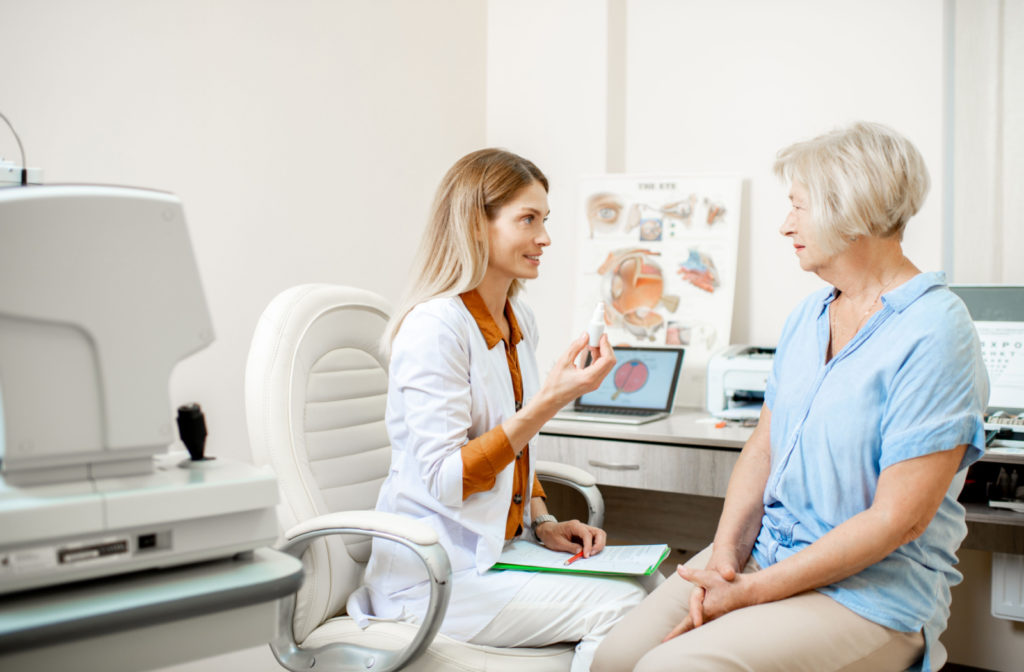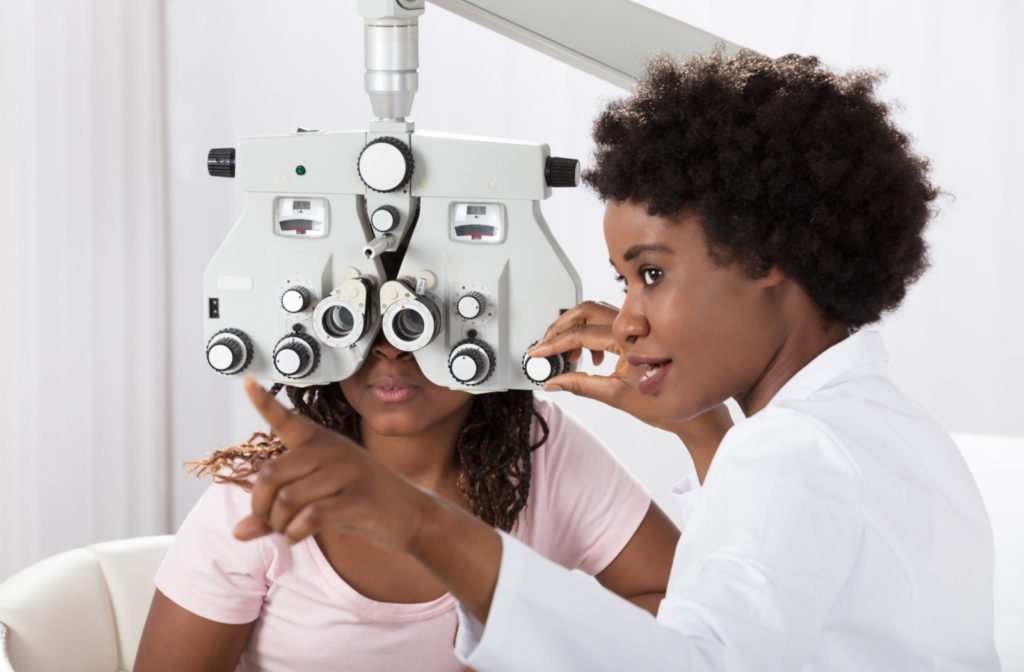Many people often neglect to go to the optometrist for a routine eye exam until eye conditions develop. Eye exams are one way you can keep your eyes healthy. But what can you expect during a routine eye exam?
During an eye exam, your eye doctor can perform a series of tests to check how clear your vision is, how healthy your eyes are, and whether or not you’re developing any medical conditions.
It can help to bring a list of any medication you’re taking and provide your eye doctor with up-to-date information about your medical and family history so they can determine if you’re at risk of developing a genetic vision problem.
The Importance of Regular Eye Exams
Many people take their eyesight for granted—until they start to have a problem with it.
Through a comprehensive eye exam an optometrist can monitor your eyes for changes. They can search for signs of potential problems, like the development of glaucoma, cataracts, or your prescription changing, and help you devise a plan to treat concerns accordingly.
This allows them to be aware of the changes occurring in your eye and provide you an early opportunity to treat developing conditions in their earliest stages.
How to Prepare for an Eye Exam
Preparing for a routine eye exam is simple, and there are steps you can take to make the process smoother, allowing for a convenient and efficient appointment.
It helps to:
- Make a list or note of any problems you may have recently noticed
- Bring along any glasses or contacts you use
- Bring a list of any medication you may be taking so the optometrist can determine if they’re affecting your vision.
Before the appointment, you may be asked about your family and medical history. This information is requested so the optometrist performing the exam can determine if you’re at risk of any genetic or hereditary eye conditions.
What to Expect During a Routine Eye Exam
Once you’re in the exam, there are a few things to expect. First and foremost, the optometrist will likely begin by asking about the information mentioned above. If you have any questions or worries, you should feel free to ask about them during the exam.
The optometrist will then perform a series of tests on your eyes. These can include:
- Visual acuity testing, which determines how well you can see at different distances
- A refraction test, which helps determine your prescription
- Testing how well you can see different colours
- The alignment of your eyes
- The pressure inside your eyes
- The health of your retina, overall eye and eyelids
- How well your eyes work together and how strong the muscles are
These tests allow the optometrist to gain a better understanding of the overall health of your eyes. The optometrist can use this information to determine if you’re developing any conditions, how healthy your eyes are, and how clear your vision is. From there, they can recommend treatment to help address any concerns.
For example, if you live an active lifestyle (through sports or through your work) an optometrist may recommend contact lenses over eyeglasses since they’re less likely to shift. Or, if you find contact lenses uncomfortable, they can recommend a different form of vision correction.
During the exam, it’s crucial to communicate your visual needs to your optometrist. Talk to them about any problems you may be having, or about any concerns you may have. They can assess your situation and may be able to provide you with advice!
Will The Optometrist Dilate My Pupils?
While it doesn’t occur during every eye exam, there is a chance the optometrist will use specialty dilating eye drops during the exam. These eye drops dilate your pupils and allow more light to enter your eye, which gives the optometrist the ability to look closer inside your eye to see how healthy your eye’s internal mechanisms are.
This lets them see your retina more clearly, along with your optic nerve. If your optometrist uses these eye drops, you should make a point to set up a way to get home that doesn’t involve driving yourself. These eye drops may make you much more sensitive to light for a few hours, which can make driving much more dangerous.
Fortunately, the eye drops will wear off within a few hours!

What to Do After an Eye Exam
Once the eye exam is complete, your optometrist will discuss the results. In some situations, they may recommend additional testing or advise you on how to care for your eyes. Sometimes, they may ask you to return for a follow-up appointment for further testing. They may even prescribe certain medications if any medical conditions have been discovered.
If you have received a new prescription by the end of your exam, you will transition into the care of our professional opticians. They will help you find the perfect frames, lenses, or contact lenses that fit your specific needs — we want you to leave our practice feeling confident and educated about your eye health. After the exam is done and you’ve returned to your daily life, it’s important to follow proper eye care in the future.
Whether this is improving your overall lifestyle, changing your diet, or utilizing sunglasses to avoid UV damage to your eyes, following the advice of your optometrist is essential.
How Often Should You Get an Eye Exam?
At West Coast Optical, we believe adults should have their vision thoroughly tested at least once a year. Many eye conditions don’t show symptoms in their earlier stages, so the more often you’re checked, the better. During a comprehensive eye exam, an optometrist can determine whether or not you’re at risk of developing eye conditions in the future.
At West Coast Optical, we know how clear vision can enhance daily life. Schedule an appointment with our optometrist.



